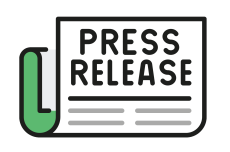
TINKER Research Reveals Ground-breaking Findings and Recommendations

The TINKER project, aimed at enhancing informatics education across Europe, has released its comprehensive report on the state of informatics education in six European countries: Cyprus, Italy, Greece, Ireland, Netherlands, and Croatia. The report, compiled through literature reviews, focus group discussions, and questionnaire responses, offers a detailed insight into informatics education, authentic learning practices, and gender inclusion initiatives. Key aspects of the research included a thorough analysis of National Curriculum frameworks, educational guidelines, and textbooks used for teaching informatics.
Curriculum Structure and Integration of Informatics
TINKER highlights significant variations in the structure and integration of informatics education across partner countries. In Greece, informatics stands as a standalone subject in primary education, whereas Cyprus integrates learning outcomes into optional and compulsory subjects. Italy and the Netherlands embed digital competencies within various subjects without a distinct informatics course. At the same time, Ireland integrates informatics concepts across subjects rather than offering it as a standalone subject at primary and secondary levels. At the secondary level, Cyprus and Greece maintain informatics as a separate compulsory subject, whereas Italy and Croatia integrate it into other subjects, making it optional in later grades. Despite these variations, the TINKER project underscores the universal recognition of informatics education’s importance while highlighting the challenge of establishing it as a standalone subject with dedicated time allocation.
Authentic Learning Practices
The TINKER project identifies significant implementation limitations across the studied countries regarding authentic learning, which connects academic concepts with real-world applications.
Despite the National Curriculum’s intent in Cyprus, many teachers lack familiarity with authentic learning, leading to inconsistent application. Greece faces gaps in aligning teaching methods with digital competency development, necessitating comprehensive professional development. In Ireland and Italy, efforts to incorporate authentic learning are hindered by time constraints, limited resources, and resistance to change. Croatia’s educators encounter obstacles like inadequate resources and large class sizes despite using authentic learning practices.
Gender-inclusive practices
Gender inclusion in informatics education emerges as an area requiring substantial improvement. While efforts are made in some countries, such as Cyprus, to represent male and female role models in curricula, comprehensive strategies for diverse perspectives still need to be developed. Greece and Italy struggle with tailored approaches for diverse student demographics, perpetuating gender stereotypes. In Ireland and the Netherlands, challenges like gender imbalances in the field and curriculum materials reinforcing stereotypes are prevalent.
To address these challenges, the TINKER project proposes strategic recommendations. These include advocating for curriculum reform to integrate informatics as a compulsory subject at the primary education level, aligned with the European Digital Competence Framework (DigComp 2.2). Recommendations also focus on updating curriculum guidelines to explicitly promote authentic learning and gender inclusion, alongside enhancing teacher training and professional development programmes.
The research findings will be used by the partners to shape the project materials and activities. The ultimate aim is to develop innovative teaching methods that meet the needs of teachers and
students. This will involve creating resources and strategies tailored to enhance informatics education across Europe.
To read the TINKER Transnational Report on state-of-the-art and needs, visit: https://tinker-project.eu/transnational-report-on-state-of-the-art-and-needs/